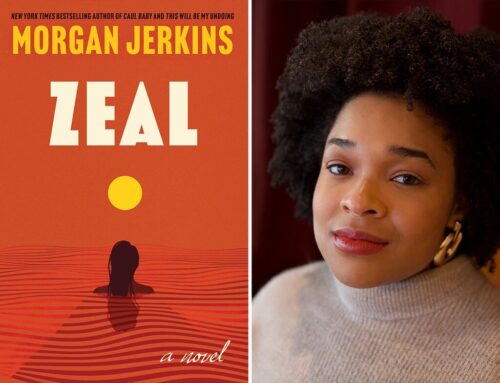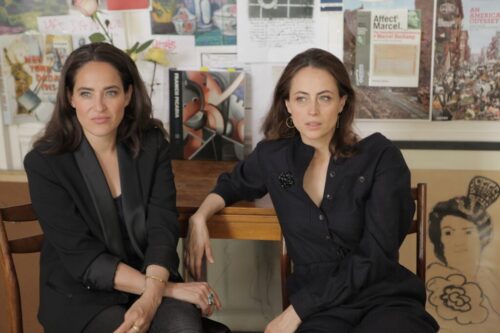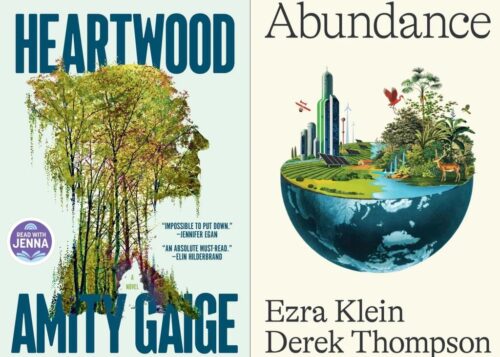When Sophie moves from Vermont to Jamaica Plain, she’s relieved that she’s no longer the only kid of color in her classroom, but everything else is a challenge for the 11-year-old newcomer. Things begin to turn around when Sophie meets a cool teenage neighbor with an adorable pug, and the pair collaborate with Sophie’s godmother, a Boston Globe journalist, to produce the Barking Puppy, a newspaper by dogs, for dogs.
“The Barking Puppy” (Levine Querido), Lori Lobenstine’s first novel for children, is based on a true story. Sophie Canon, now 20, is Lobenstine’s goddaughter; the two really did create the Barking Puppy newspaper, and there really was a cute pug involved (along with Lobenstine’s own goofy retriever, Summit).
One part of the book that Lobenstine invented was her character’s job at the Globe. She made up that detail, she says, “because it’s such a Boston story and I’m a huge fan of the Boston Globe.” In reality, she adds, “probably the Barking Puppy is the biggest paper I’ve worked at, besides my fourth-grade newspaper.”
When Lobenstine decided to write a children’s novel about their adventures, the real Sophie, now a student at Emerson, jumped right in. “She’s so creative,” says Lobenstine. “I talked to her a little bit about it, and then we decided to do an artist retreat — some friends of ours own a farm in Vermont and they invited us to come. I was working on the book and she was really into being a filmmaker in high school so she made these two short documentaries. She continues to be this amazingly creative person and I’ve seen her really come into her own.”
“The Barking Puppy” is meant to entertain and delight, like any other middle-grade novel — Lobenstine says she was “just smitten with how fun the story could be” — but the author also hopes it inspires its readers, if not to start their own newspapers, to at least “lean into their passions.”
“I wanted the book to model a lot of different ways to be yourself,” she adds, “and to show how a community can be a place where we have room for each other, where we hold each other up.”
Lori Lobenstine will read at 6 p.m. on Thursday, April 24, at the Frugal Bookstore, 57 Warren St., Roxbury.
And now for some recommendations …
Lydia Millet is one of our finest fiction writers, a cool chronicler of an overheating planet and a master at melding history in humor in novels like “Oh Pure and Radiant Heart” and “A Children’s Bible.” “Atavists” (Norton) is the latest collection of her short fiction, and a perfect introduction to Millet’s work for those who haven’t yet discovered her laser wit and enormous heart.
Tech-driven visions of the future have always had a high error rate (I am still looking around for the robot housemaid promised to me by “The Jetsons”). But as Silicon Valley grows in political influence, the fantastic plans promulgated by industry leaders have begun to influence policy and government budgets. This isn’t great, as science journalist Adam Becker points out in “More Everything Forever: AI Overlords, Science Empires, and Silicon Valley’s Crusade to Control the Future of Humanity” (Basic), a clear-eyed assessment of today’s pie-eyed prophets.
In “Notes to John” (Knopf) readers are given excruciatingly intimate access to the mind of Joan Didion — these collected “notes” comprise the journal she wrote to her husband, John Gregory Dunne, to convey and explain the conversations she had with her therapist over the first decade of the 21st century. They are extraordinary. Didion’s voice is undiluted, bold, open, and the topics she discusses range from childhood to motherhood, from work to money to fame. And yet reading these entries can feel a little invasive, a bit of an intrusion; much as I adore Didion’s work and have learned from her over the years, I kept asking whether we really need to see into her soul, after her death.
This story has been updated to correct an error in the spelling of “The Barking Puppy” author’s last name.
Kate Tuttle edits the Globe’s Books section.
Nancy Kricorian’s novels tell the stories of the Armenian diaspora, exiled but always seeking communitySearching for an unsung hero in your family’s history of thriving after the HolocaustBefuddled by ‘adulting’? Gretchen Rubin has some words of wisdom for you!




Comment count: